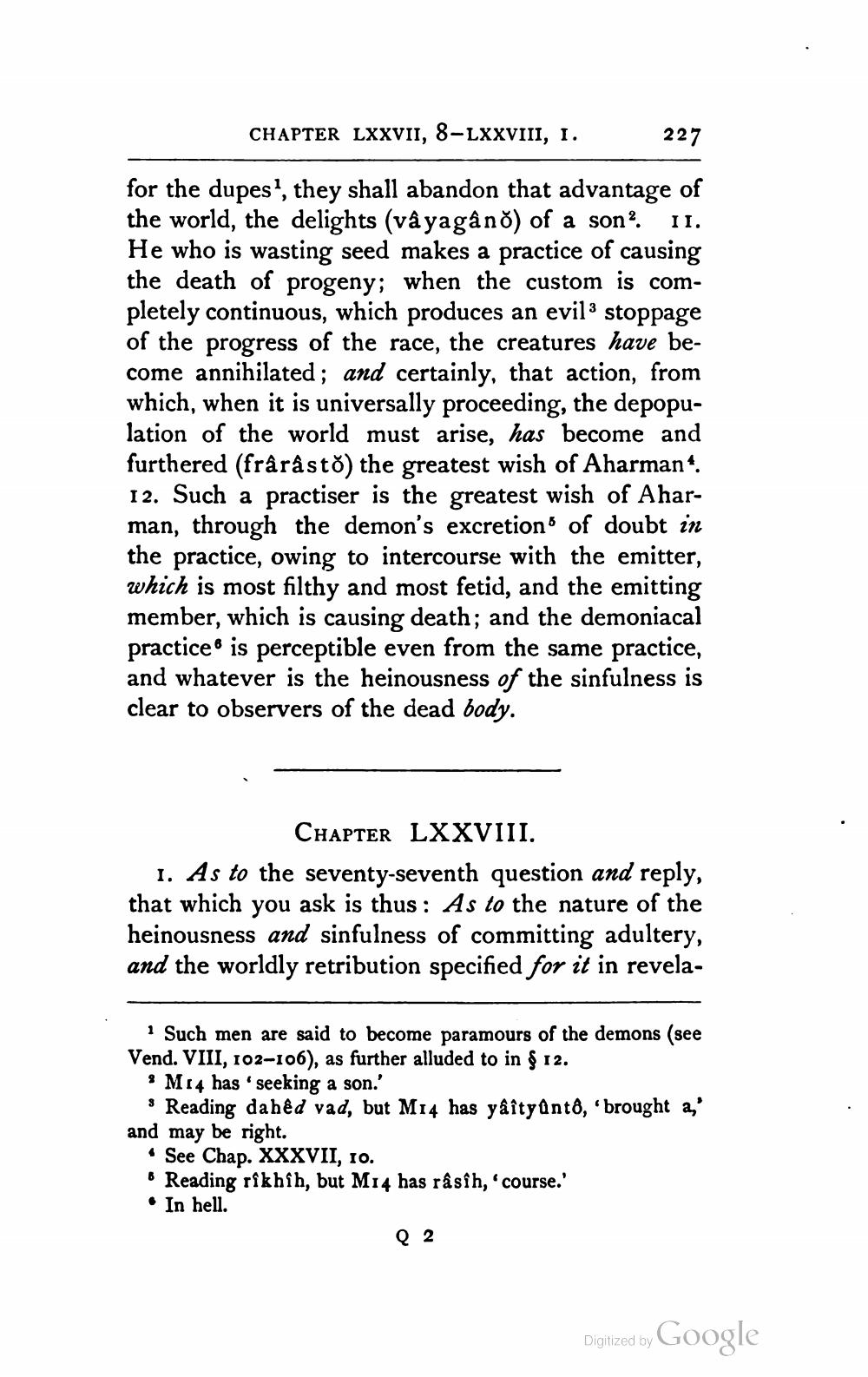________________
CHAPTER LXXVII, 8-LXXVIII, I.
227
II.
for the dupes', they shall abandon that advantage of the world, the delights (vâyagânŏ) of a son2. He who is wasting seed makes a practice of causing the death of progeny; when the custom is completely continuous, which produces an evil3 stoppage of the progress of the race, the creatures have become annihilated; and certainly, that action, from which, when it is universally proceeding, the depopulation of the world must arise, has become and furthered (frârâsto) the greatest wish of Aharman*. 12. Such a practiser is the greatest wish of Aharman, through the demon's excretion of doubt in the practice, owing to intercourse with the emitter, which is most filthy and most fetid, and the emitting member, which is causing death; and the demoniacal practice is perceptible even from the same practice, and whatever is the heinousness of the sinfulness is clear to observers of the dead body.
CHAPTER LXXVIII.
1. As to the seventy-seventh question and reply, that which you ask is thus: As to the nature of the heinousness and sinfulness of committing adultery, and the worldly retribution specified for it in revela
1 Such men are said to become paramours of the demons (see Vend. VIII, 102-106), as further alluded to in § 12.
* M14 has 'seeking a son.'
3
Reading dahêd vad, but M14 has yâîtyûntô, 'brought a,' and may be right.
See Chap. XXXVII, 10.
• Reading rîkhîh, but M14 has râsîh, 'course.' • In hell.
Q 2
Digitized by
Google




